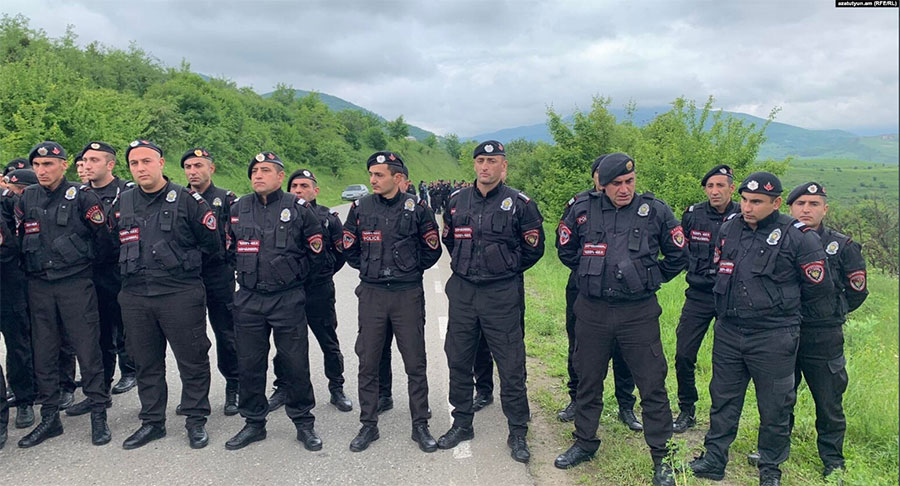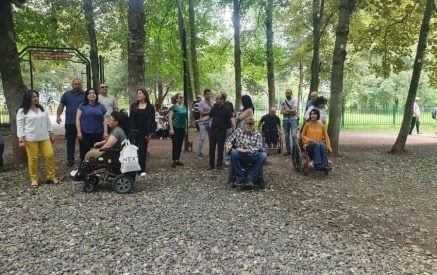Police again blocked on Sunday the roads leading to a village in Armenia’s northern Tavush province that will be affected hardest by the Armenian government’s decision to cede several local border areas to Azerbaijan.
The village of Kirants was cordoned off as a group of opposition parliamentarians were about to visit it to again show support for local residents. A police roadblock prevented them from reaching the community that has been the epicenter of protests in Tavush sparked by the planned handover. Journalists were also banned from entering Kirants.
The lawmakers representing the main opposition Hayastan alliance argued bitterly with the chief of the provincial police department as well as officers of a special police unit sent from Yerevan. The policemen at the scene refused to give clear reasons for the ban condemned by the lawmakers as illegal.
Armenia’s National Security Service (NSS) said later in the afternoon that non-locals’ access to the restive village has been “temporarily restricted” out of “security and operational necessity.” It said Armenian border guards subordinate to the NSS are starting their deployment in and around Kirants.
Read also
The first group of border guards was spotted there on Saturday. They are replacing Armenian army units that are due to withdraw from the four border areas adjacent to several Tavush villages.
Unlike the other border villages, Kirants would lose not only agricultural land but also some of its houses and a key bridge connecting it to the rest of the country. Angry local residents again staged protests on Thursday the day after the government resumed preparations for the land transfer seen by them as a grave security risk.
Minister of Territorial Administration and Infrastructures Gnel Sanosyan visited Kirants on Saturday in a bid to allay their concerns. He reiterated government pledges to build a road bypass for the community.
“We will build the road and that will automatically bring security,” claimed Sanosian.
The protesting villagers dismissed his assurances. As one of them said, “When the Azerbaijanis come and stand here, how can I live here? How can my children live here?”






















































